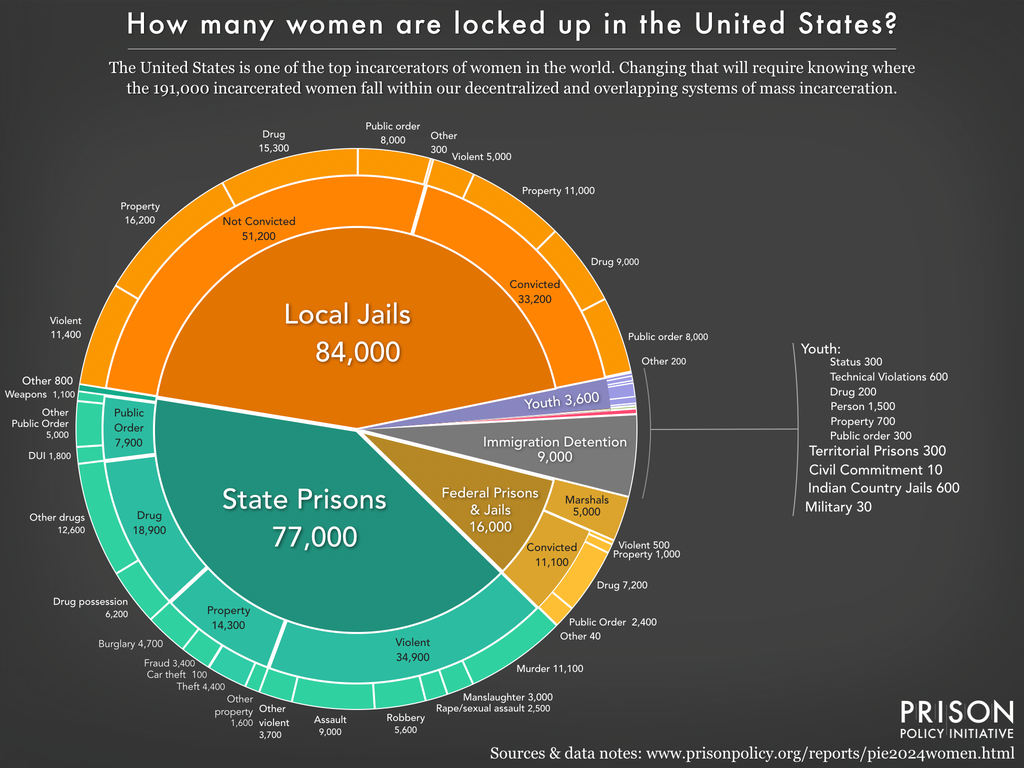
190,600 women and girls are locked up in the United States on any given day. That’s the top-line number from the new report Women’s Mass Incarceration: The Whole Pie 2024, released today by the Prison Policy Initiative. However, that number tells only part of the story of women’s incarceration in America. The report dives deep into the data to provide the most recent and comprehensive data on how many women are incarcerated in the U.S., in what kinds of facilities, and why; as well as detailed data on incarcerated women’s demographic makeup and health.
Women in the U.S. experience a dramatically different criminal legal system than men do, but data on their experiences is difficult to find and put into context. The new edition of Women’s Mass Incarceration: The Whole Pie, which the Prison Policy Initiative has published since 2017, fills this gap with richly-annotated data visualizations about women behind bars.
“Like in so many other aspects of life in America, the unique experiences of women in the criminal legal system are obscured by those of men, treated as an afterthought,” said Aleks Kajstura, co-author of the report. “While incarceration impacts all people, tearing them away from their families, damaging their health, and putting an additional financial strain on those already living on a razor’s edge, the criminal legal system is particularly harsh for women in unique and damaging ways.”

“The data in this report should serve as a wake-up call for policymakers. Mass incarceration is failing everyone in the country — and when the country locks up women, the ripple effects are especially devastating,” said Wendy Sawyer, research director for the Prison Policy Initiative and co-author of the report. “Instead of continuing with this failed policy, they should work to address the issues that get women locked up in the first place — poverty, unmet physical and mental health needs, and the over-policing of Black women and girls.”
The report particularly examines the important role of jails in women’s incarceration. 93,000 women are held in jails, and the majority— 51,000 — have not been convicted of a crime. It explains that unaffordable cash bail and a criminal legal system that funnels them into jails after conviction are likely responsible for so many women being held in these facilities. The report goes on to show that jails can be especially deadly for women, with high rates of death from suicide and drug or alcohol intoxication. Additionally, the report highlights that, because they’re generally designed for shorter stays, jails are poorly positioned to provide healthcare for women, and that these facilities make it difficult for women to stay in touch with their families, by charging high rates for phone calls and restricting mail.
Women’s Mass Incarceration: The Whole Pie 2024 also includes a section offering insights about the backgrounds and experiences of women in state prisons. Key takeaways include: